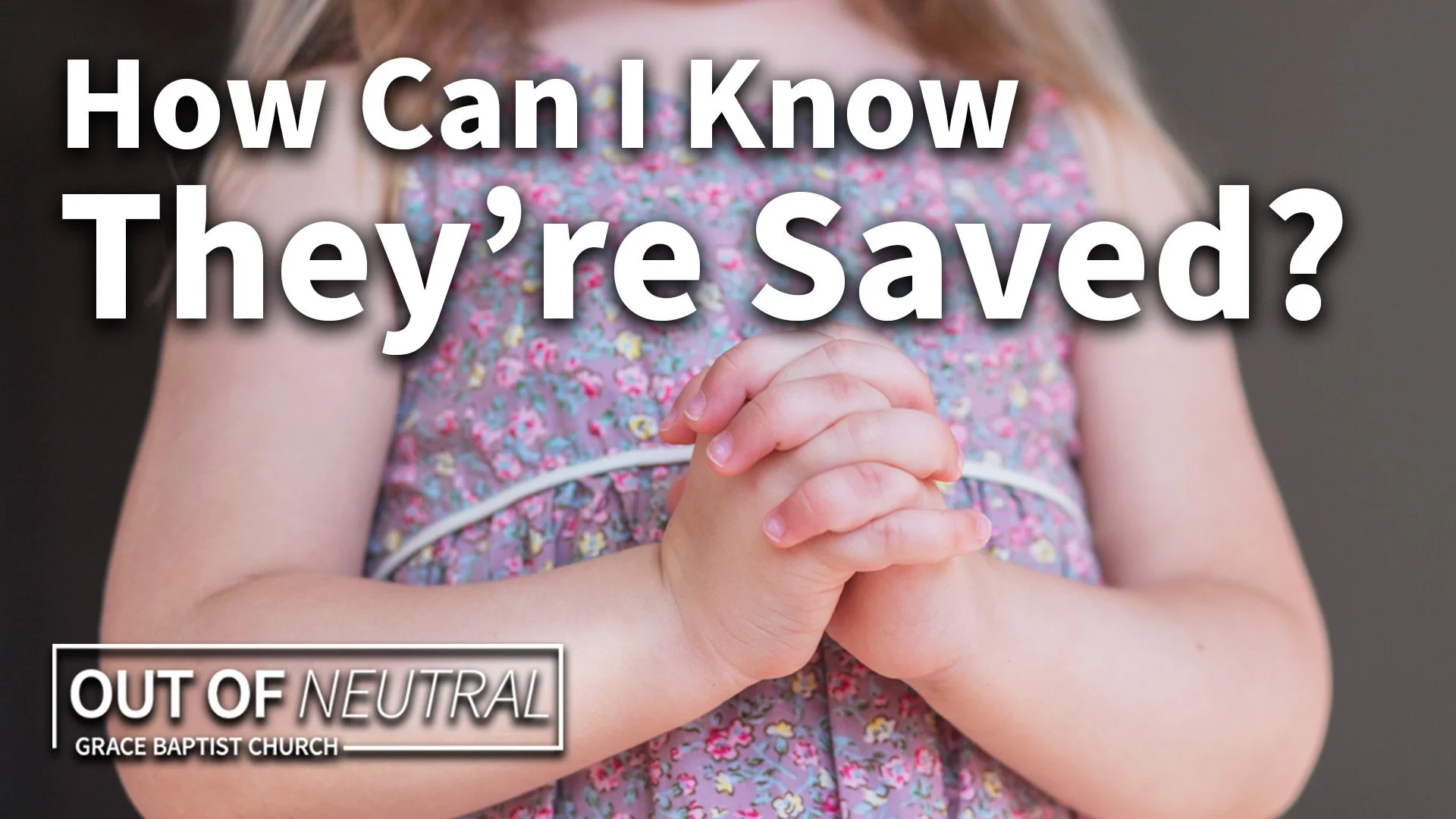The book of 1 Samuel tells the story of Hannah and her son Samuel. At his birth, she dedicated her son to the Lord’s service, and as she nursed him she lived with the conscious realization that she was preparing her son to serve in the presence of God. Her example challenges us as parents to consider what our words, decisions, and lifestyle communicate to our children about what is most important in life. As a Christian parent, the greatest desire should be to see your child trust in Christ. But how do you do that? And how do you know what is happening in your child’s faith?
If you’re thinking about some of these issues, I’d recommend Scott Slayton’s article, “How Do I Know if My Child Has Become a Christian?”
He recommends five questions to help you discern whether your child has genuinely put his or her faith in Jesus. He doesn’t claim of course that anyone can know what is in their child’s heart, but these questions help in getting you started:
Does Your Child Know He Needs a Savior?
Does Your Child Understand Jesus’ Death and Resurrection?
Does Your Child Believe She is Saved by Repentance and Faith?
Is Your Child Showing Signs of New Life?
Is Your Child Free from External Pressures?
He goes into detail in explaining each one and they provide an excellent guideline. By way of encouragement, I would add a few reminders that appear to be assumed by his article.
1. Are you asking your child spiritual questions? Church is a place where children may hear a sermon directed to a crowd or a lesson directed to a group, but faith is established and confirmed by one on one spiritual conversations. The place for these to occur ought to be the home. Over the years I’ve asked my children hundreds of spiritual questions, trying to figure out what they believe about what they’re hearing of the message of the Bible.
What did you learn today?
What did you think of that?
How do you know that’s true?
Why do you think God does that?
By layering questions over time, you get a growing picture of what your child knows, what they think about what they know, and what they’re doing about what they believe. This gives you an opportunity to share how you dealt with those questions or how you came to believe the things that you’re asking about. And it also gives you a picture of where the holes are and where more teaching is needed. That touches on the article’s next assumption.
2. Are you teaching your child from the Bible? Slayton mentions family devotions and a discussion of Sunday teaching in passing. If these aren’t habits in your family yet I’d encourage you to work at them. Even simple children’s Bibles can be a springboard to profound Biblical teaching. And memorizing Scripture as a family can be a doorway to deeper spiritual discussion. Almost anything done consistently with an open Bible will bear fruit in your child’s life. This falls in the “Just do it!” category.
3. Are you sharing the gospel with your child? The final question may sound too obvious, but if you don’t share the gospel with your child consistently, its message will probably get lost in all the other things that they’re hearing and learning each week. Sharing the gospel involves talking about (1) who God is and the relationship He desires to have with us; (2) who we are and how are sin has separated us from Him; (3) who Christ is and how His death on our behalf makes salvation possible; and (4) how repentance and faith in Jesus are the only means by which we can be forgiven. The building blocks of the gospel can be shared in a series of short conversations. And spiritual questions can confirm whether there is real understanding. But once there is, a parent has the wonderful privilege and responsibility of offering their child an invitation: “Do you want to confess your sin to God, ask for His forgiveness, and make Jesus your Lord?”
I love our children’s ministry and am grateful for the tireless hours that are spent in teaching our children and our youth. But they’ll never replace the role of a parent in leading a child to Christ and discipling them in His ways. If you have questions or need help, let me know or let your child’s learning centre teacher know. We want to partner with you in what God is doing in the life of your child!
In awe of Him,
Paul














